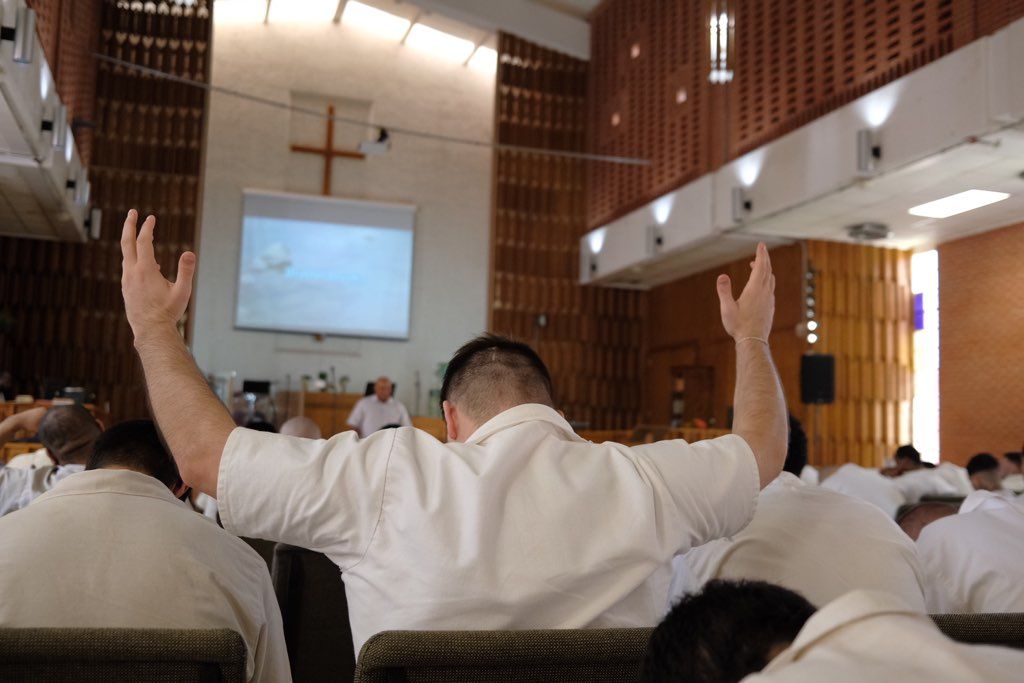Unlocking Potential: The Transformative Power of Education in Prisons
Almost everyone who is locked up now is going to be set free one day.
I’ve just started to read Christopher Zoukis’ 2014 book, College for convicts: The case for higher education in American prisons, and I felt compelled to quote something from his introduction. Reading this quote stopped me in my tracks because his argument is spot on. I’ve written articles that make a case for higher education in prison, which I will get to in a minute. But the point Zoukis made here deserves to be highlighted.
In his introduction, he shared that although numerous studies have been undertaken, the results of which confirm the significant benefits to be gained by providing educational opportunities inside our prisons, the public continues to resist.
People ask why Americans should pay to provide a college education to those in prison when so many law-abiding citizens struggle to send their children to school. Why should those in prison get it for free? Moreover, if we provide a learning environment for those in prison, prison will seem “less terrible and serve as a less effective deterrent to crime.”
He’s careful to note that the deterrent argument fails. Others believe that people who commit crimes made the choice to limit their freedoms when they chose to break the law. “Therefore, handing it free to people who break the law feels wrong, feels like a slap in the face of justice,” Zoukis said.
So why, then, should we care about providing an education to prisoners who didn’t care about the victims they hurt and the society they endangered? Here’s why according to Zoukis:
We care, very simply, because they get out. Almost everyone who is locked up now is going to be set free one day. If we treat prisoners like animals the whole time they are locked up, that’s what we’ll get when they’re back on the streets: wild, dangerous animals. But if we educate these people, give them positive reinforcement, and introduce the idea that they will have something to offer society when they return to their communities, that’s what we’ll get when they are free: people who have something to offer society.
“Prison education programs lower recidivism rates and increase employment opportunities post-release,” says Sarah Wood, author of a 2022 article in U.S. News. Postsecondary education programs come in a variety of forms, ranging from non-credit workshops taught by volunteers to full degree-granting programs.
One program called TUMI, short for The Urban Ministry Institute, offered by World Impact, offers a four-year seminary-level education intended to equip men and women for service in the ministry field who might not otherwise be able to afford a seminary degree. It was during my research interviewing incarcerated men and women who were students in the program that I learned how much of an impact prison education can make.
The man who entered prison.
In 1993, at a noted after-dark meeting place for homosexuals in East Texas, a group of three men, one aged 29, the “ringleader,” and two others, aged 19 and 17, abducted a 23-year-old man named Nicholas West from the park and drove him down a rural road in their pickup. After forcing West to remove his clothes, and several minutes of untold torture, the three men shot West to death. West was abducted from a park in Tyler, Texas, taken to a gravel pit outside of town, shot nine times, and left to die (UPI, 2003). The three were arrested shortly after the incident, and they were sentenced to life in prison.
Donald Aldrich, the so called “ringleader” was executed in 2004 for “the abduction and gay-bashing murder of an East Texas man,” according to a 2004 Houston Chronicle article, and accomplice Henry Dunn was put to death in February 2003. The third member, David McMillan, was convicted of aggravated kidnapping and aggravated robbery and received a life prison term.
The man I met had changed.
I met David McMillan, one of the three, who was 17 at the time of the crime and now well into his 29th year of a life sentence during a group interview as part of my research into the effectiveness of a theological training program in prison in which McMillan was a student. At the time of the three-hour group interview and casual interactions afterwards with this group of men, most of whom were serving life sentences for various crimes, I had no idea why any of the men were currently imprisoned. It was only later, when I read a 2014 Vanity Fair article about McMillan and his partners in crime, that I learned of the gruesome details of McMillan’s crime.
The 2014 Vanity Fair article portrayed McMillian and his partners as cold-blooded killers, and it was no doubt an accurate description of the young man who began his prison sentence at the age of 17. The man I met, 29 years into his sentence and eligible for a parole hearing in nine months, was nowhere near the same person who entered prison 29 years ago.
I was there in this Texas prison for both quantitative and qualitative research to evaluate the TUMI program. In response to one open-ended question, “Tell us about the kind of person you were before going to prison and who you are now that you have been a part of the TUMI prison training?" participants who completed the survey and those who were interviewed in focus groups credit TUMI for strengthening and deepening their faith, stating, “My incarceration led me back to the Lord and TUMI played a huge part in strengthening and deepening my faith and in preparing me to succeed upon release.”
The case for higher education in prison.
Other participants indicated how their lives had changed with statements such as, “I used to be a speed addict alcoholic wife-beater. Now I’m a worship leader ministering man of God—Amen!” One participant said, “I was immature, frozen by insecurities, and had no faith in anything when I went to prison. God, through TUMI, the church, and others He placed in my path, gave me a new identity.”
Another participant reflected, “I had absolutely destroyed my life and the lives of my loved ones. TUMI guided me on a path to examining my behavior and lining it up with Jesus.” Finally, through the curriculum, participants indicated they had "grown and matured as a Christ-centered man and learned my gifting and calling,” and “It’s like night and day. I am now much more disciplined in everything I do.”
David McMillan summed it up quite well. I asked participants to tell me how being a part of TUMI had made a difference in their lives. David said, “It’s changed what I’m livin’ for!”
It struck me, as I interviewed these men, that it was like having a conversation with a group of long-time friends. Participants reflected that before TUMI, they had poor quality family relationships and associations with peers who were also involved in criminal activity. A big component of the TUMI program, which goes beyond the typical correspondence courses that are highly available in prison, is the relationships that are formed during class interactions and beyond. “It’s the community, the relationships, the camaraderie. These guys right here in this room (referring to the TUMI participants around the table), this is my family, and I love them very much!”
McMillan, in particular, shared how being a part of TUMI “gives a man hope.” He said, “You have to give the people hope. Because if people have no hope, then it’s ‘get up in the morning and have no kind of guidance.’ They look up to the toughest dudes and try to imitate them. But when you have people like the men in this classroom, who are walking and shedding light everywhere they go, then they have something positive to follow. There’s a better way to live, and it’s like this.” He added that, “You gotta rehabilitate yourself. We’re gonna be in this program, and we got to set the example and break the cycle and break the chains.” TUMI breaks the cycle, “it gives a man hope” he said.
McMillan also talked about the fears he had about being released and returning to the community after 30 years in prison. Would he be able to pick out toothpaste from the rows and rows of options available at the local drug store (options at the prison “store” were limited to two)? Would he over-react one night if his future wife went to touch him tenderly in the night (if someone touches you in prison while you’re sleeping, it’s definitely not a good thing)? Would he panic at the DMV while getting his identification in order (when a lot of people are milling about near you in prison, it’s also not a good thing, and you must keep your guard up at all times, fully prepared to defend yourself)? With someone who possessed this level of self-awareness and thoughtfulness, I wondered…was I sitting two feet away from the same man in the article? Most certainly I was not.
"The benefits of educating prisoners are numerous. For example, education can aid prisoners’ personal development and improve their sense of well-being, thereby contributing to an improved prison environment for prisoners and staff alike. In addition, it can help to reduce the financial cost of re-offending and the number of victims of crime, thus helping prisoners with their successful re-integration back into society” (Klementowski, 2020).
I believe the evidence is clear: TUMI is responsible for the drastic change I observed in people like David McMillan.
So, yes, we should provide educational opportunities to those who are incarcerated!
Ready to learn about how program evaluation can maximize your organization’s community impact? From data collection, to analysis, to communicating findings to a wide audience, we develop insights that drive informed decisions. Get started by emailing robin@labarberalearning.com.










